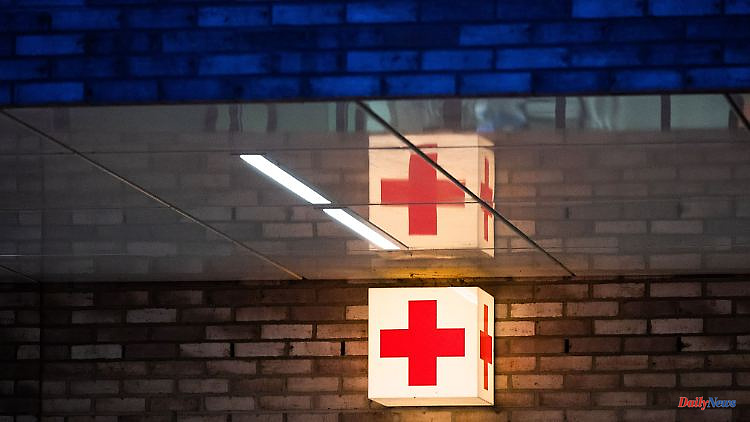Long distances in dire need: The hospital company had an evaluation carried out as to what the planned specialization of the clinics would mean for the patients. An analysis shows alarming prospects for heart attacks and births, among other things.
Düsseldorf (dpa/lnw) - According to an analysis for the hospital society, the planned hospital reform could reduce emergency care for acute heart attacks to a dangerous extent. This emerges from an analysis presented on Tuesday for the German Hospital Society.
The data broken down for North Rhine-Westphalia indicated, among other things, an "extremely dangerous" concentration of the planned sites in so-called interventional cardiology, warned the President of the North Rhine-Westphalia Hospital Association (KGNW), Ingo Morell. Currently, acute heart attacks in NRW can still be treated quickly at 136 locations. With the targeted division of hospitals into primary care and higher emergency levels, only 34 locations remained.
"70 percent of the patients would have to switch to one of these hospitals," criticized Morell. "When it's a matter of life and death, when every second counts, a thin network of a few clinics cannot ensure services of general interest in a federal state with 18 million inhabitants."
The effects of the proposals presented two months ago by Federal Minister of Health Karl Lauterbach (SPD) would therefore also be extreme in obstetrics: From 137 locations, only 35 remained after hospital specialization, calculated an Essen economics professor with a data analysis company specializing in hospitals. 70 percent of the parents would then have to look for another maternity hospital.
"It is completely unrealistic to outsource more than two-thirds of all births to a few obstetric services," emphasized Morell. "For this, several floors with delivery rooms and at the same time hotels for heavily pregnant women and relatives would have to be built at these locations."
The reform proposals would bring "rigorous cuts" for most patients - including in neurology and urology. "If the reform concept were to be applied consistently, important medical services would have to be concentrated in just 36 hospitals in the Rhineland and in Westphalia-Lippe," summarized the KGNW. "This means that the majority of the 337 NRW hospitals would be excluded from elementary parts of the care."
From the point of view of society and the NRW district council, responsibility for hospital planning must remain with the states. "Anyone who only bases hospital planning on an algorithm cannot meet the real needs of the people in our country," warned Morell. "We hope that the federal and state governments will focus on good patient care across the board in their talks about hospital reform."
Caritas, Diakonie and the district council also expressed alarm at the results of the impact analysis. "A hospital reform is necessary, but it must not lead to gaps in care," emphasized the chief executive of the North Rhine-Westphalia district council, Martin Klein, in a statement. "We expect serious consequences, not only for medical care in rural areas," warned Caritas in North Rhine-Westphalia.












